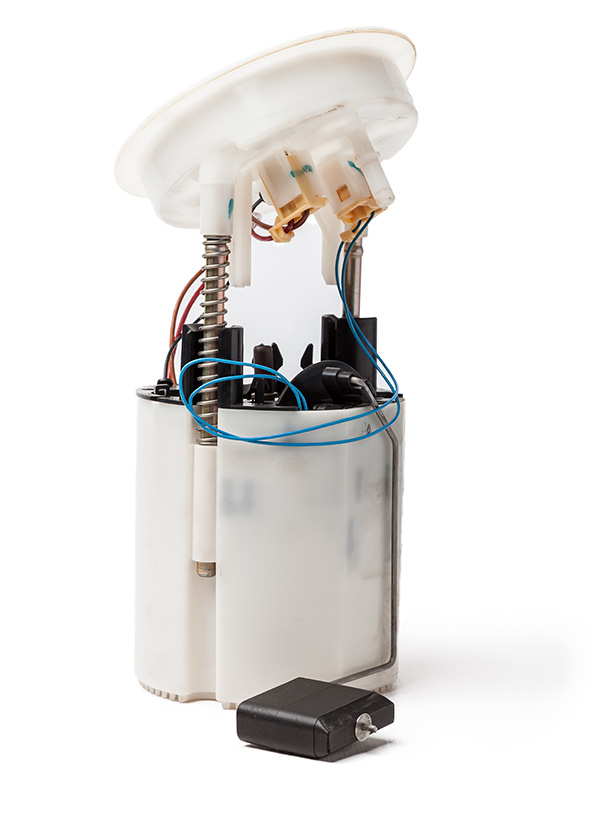
If you catch a strong smell of gasoline near your vehicle but don’t see any liquid on the ground, you’re right to be concerned. Even without a visible leak, that odor can point to a fuel system problem that needs attention. Gasoline vapors are flammable and toxic, so the cause should always be found and fixed as soon as possible.
The tricky part is that these smells often come and go. They might appear right after refueling, while idling, or even when the car is parked overnight. Here are some of the most common reasons why this happens and what can be done about it.
A Loose or Damaged Gas Cap
It might sound too simple, but a worn or loose gas cap is one of the leading causes of fuel odors. The cap seals the top of your fuel tank and keeps vapors from escaping. If the seal inside the cap is cracked or missing, air can move in and out of the tank more freely. When that happens, gasoline vapors escape and create that strong smell near the rear of your vehicle.
A good way to test this is to remove and re-tighten the cap until it clicks. If the smell goes away after a day or two, that was probably the cause. If it returns, the cap may need to be replaced.
Problems Inside the Evaporative Emissions System
Modern cars use a system called EVAP to trap and recycle gasoline vapors before they can escape into the atmosphere. The system uses a charcoal canister, valves, sensors, and hoses to capture vapors and send them back into the engine to be burned.
When one of those parts fails or a hose cracks, vapors can leak out instead of being contained. The result is that you smell gas, especially after filling the tank. EVAP system faults often trigger the check engine light, so if that light is on, it’s worth having the system tested with a smoke machine to pinpoint any leaks.
Leaking Fuel Injector Seals
Fuel injectors deliver a fine spray of gasoline directly into the engine’s cylinders. They are sealed with small rubber o-rings that can harden over time. When they start to leak, small amounts of fuel can evaporate before dripping, which is why you might smell gas but never see a puddle.
This type of leak is more noticeable when the engine is warm because the heat increases vapor pressure. A mechanic can often spot the problem by looking for dark, wet spots around the injectors or smelling fuel near the engine after it’s been running.
Cracked Fuel Lines or Fittings
Fuel lines run from the tank to the engine, carrying fuel under pressure. Over time, these lines can corrode, develop tiny cracks, or become brittle. Rubber lines, in particular, can dry out from age or exposure to heat.
Small cracks often let vapors escape without dripping any visible fuel. The smell might be strongest after parking the car in a garage or after driving for a while, when the system has been pressurized. Since these lines are hidden under the car or behind engine components, professional inspection is often the only way to find the problem.
Overfilling the Gas Tank
Topping off the tank may seem harmless, but it can actually push liquid fuel into the vapor recovery system. That system isn’t designed to handle raw gasoline, and the excess can cause strong odors that take days to fade.
Over time, fuel can damage the charcoal canister and hoses, leading to long-term EVAP leaks. The safest habit is to stop refueling when the pump clicks off automatically.
Fuel Tank or Filler Neck Corrosion
In older or high-mileage vehicles, the metal filler neck or tank can begin to rust. Small holes or seams can allow vapors to escape, especially on hot days when fuel expands. You might notice the smell after the car has been sitting for a while or when parked on an incline.
Technicians can inspect these components visually and with a pressure test to confirm whether there’s a slow leak.
Why You Should Take Gas Smells Seriously
Gasoline vapors are highly flammable, and they also contain chemicals you don’t want to breathe. Even a minor vapor leak can get worse quickly. It can also trigger emissions test failures and cause your check engine light to stay on.
If you ever notice a strong gas smell inside the cabin, roll down your windows right away and avoid driving far until it’s inspected. Fumes inside the car often mean a more serious leak in the engine bay or underbody area.
Get Reliable Fuel System Repairs at Strande’s Garage in Denton, TX
If your car smells like gas but you can’t find a leak, our team at Strande’s Garage in Denton, TX can help. We perform detailed fuel system inspections, pressure testing, and EVAP diagnostics to locate even the smallest vapor leaks. Whether it’s a cracked hose, a worn seal, or a loose connection, we’ll fix it safely and correctly. Visit us today to protect your car, your fuel economy, and your peace of mind.